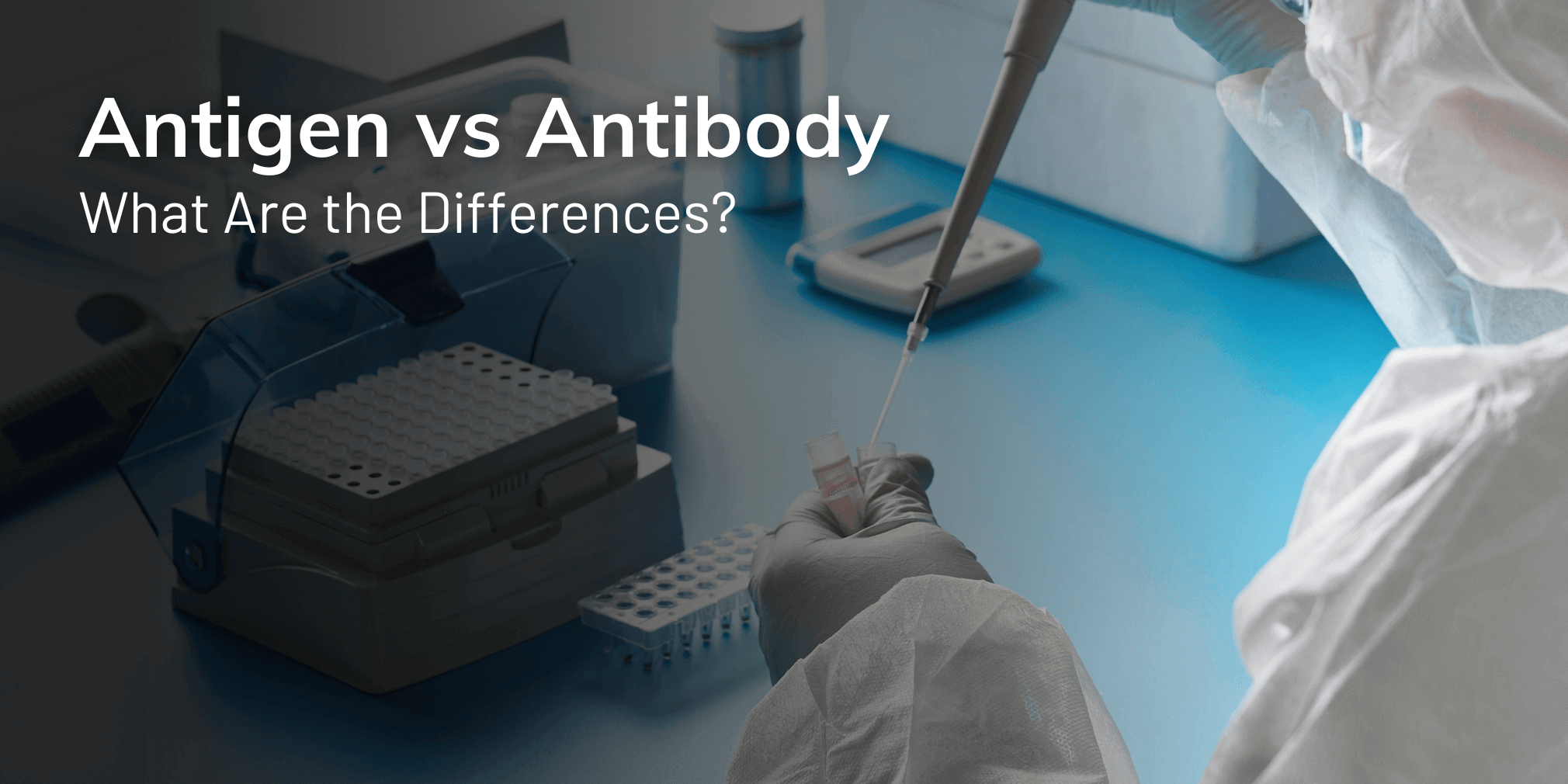
Antigen vs Antibody: What Are the Differences?
Your immune system fights infections using two key players: antigens and antibodies. While they sound similar, they perform opposite roles in immune defense.
In simple terms:
- An antigen is the invader (like a virus or bacteria).
- An antibody is your body’s defense weapon against it.
Understanding the difference between an antigen and an antibody is essential not just for medical professionals but also for anyone trying to make sense of lab results, vaccines, or how the immune system works. This article explores their definitions, types, functions, and how they interact in health and disease.
What Is an Antigen?
An antigen is any foreign substance that triggers an immune response in the body. It is often found on the surface of pathogens like viruses, bacteria, or fungi, but can also come from pollen, toxins, or even transplanted organs.
Key Characteristics:
- Can be proteins, polysaccharides, or lipids
- Located on the surfaces of pathogens
- Stimulate the production of antibodies or activate immune cells
Example:
The spike protein of the SARS-CoV-2 virus is an antigen that triggers antibody formation in COVID-19.
What Is an Antibody?
Antibodies, also known as immunoglobulins (Ig), are Y-shaped proteins produced by B cells (a type of white blood cell) in response to antigens.
What Do Antibodies Do?
- Bind specifically to antigens
- Neutralize pathogens
- Tag pathogens for destruction by immune cells (like macrophages)
- Prevent pathogen entry into host cells
Example:
IgG antibodies against hepatitis B surface antigen indicate past infection or vaccination.
Difference Between Antigen and Antibody
| Feature | Antigen | Antibody |
|---|---|---|
| Definition | Foreign substance triggering an immune response | An immune protein that binds to specific antigens |
| Nature | Mostly proteins or polysaccharides | Glycoproteins |
| Origin | External (pathogens, allergens) or internal | Produced by B lymphocytes |
| Role | Triggers an immune response | Neutralizes, marks, or destroys antigens |
| Specificity | Each antigen can trigger multiple antibodies | Each antibody targets one specific antigen |
| Example | Spike protein of coronavirus | IgM, IgG, and IgA against the dengue virus |
Types of Antigens
Antigens can be classified based on their source and immune function.
1. Exogenous Antigens
- Enter the body from outside (e.g., viruses, bacteria, pollen)
- Processed by antigen-presenting cells (APCs) like macrophages
2. Endogenous Antigens
- Generated within the body (e.g., viral proteins inside infected cells)
- Presented on the surface of infected cells via MHC I molecules
3. Autoantigens
- Your own body’s proteins that are mistakenly targeted in autoimmune diseases (e.g., in lupus)
4. Tumor Antigens
- Abnormal proteins expressed by cancer cells, sometimes targeted in immunotherapy
5. Allergens
- Harmless substances (like dust or pollen) that trigger allergic responses in some individuals
Types of Antibodies (Immunoglobulins)
Antibodies come in five main classes, each with specific roles:
| Type | Function | Location |
|---|---|---|
| IgG | Most abundant; long-term immunity; crosses placenta | Blood, tissues |
| IgA | Mucosal immunity (gut, lungs, saliva, tears) | Mucous membranes |
| IgM | First antibody made during infection | Blood and lymph |
| IgE | Involved in allergic reactions and parasitic defense | Lungs, skin, and mucous membranes |
| IgD | Unknown function; helps B cells initiate response | Surface of immature B cells |
Antibody example: IgE levels rise in asthma and allergic rhinitis.
How Do Antigens and Antibodies Work Together?
When an antigen enters your body (via infection or vaccine), your immune system reacts by:
- Recognizing the antigen using antigen-presenting cells
- Activating B cells to produce specific antibodies
- Antibodies then:
- Bind to the antigen
- Block its activity
- Recruit other immune cells to destroy it
This is the basis for natural immunity and vaccination.
Diagnostic Tests Involving Antigens & Antibodies
Many medical tests rely on antigen-antibody interactions.
1. Rapid Antigen Tests
- Detect antigen presence from a virus (e.g., COVID-19, dengue)
- Indicate active infection
2. Antibody Tests (Serology)
- Detect IgM or IgG antibodies against specific pathogens
- Indicate past or current exposure
Example:
After COVID vaccination, you may test positive for anti-spike antibodies but not for nucleocapsid antigen.
Clinical Relevance
Vaccines
Vaccines contain weakened or inactivated antigens to trigger antibody production without causing illness. Your body “remembers” the antigen and produces faster antibodies upon real infection.
Autoimmune Diseases
In conditions like lupus or rheumatoid arthritis, the body misidentifies its own proteins as antigens, producing autoantibodies that attack healthy tissues.
Blood Transfusion
Antigens on red blood cells determine blood type (A, B, AB, O). Incompatible transfusion can cause antibodies to attack foreign red cells, a life-threatening reaction.
Summarizing…
| Concept | Antigen | Antibody |
|---|---|---|
| Acts As | Trigger | Responder |
| Produced By | Pathogens, cells, allergens | B lymphocytes (plasma cells) |
| Function | Elicit immune reaction | Neutralize, destroy, or label antigens |
| Examples | Bacterial toxins, virus particles | IgG, IgA, anti-dengue, anti-COVID antibodies |
| Diagnostic Use | Indicates active infection | Indicates exposure or immunity |
Final Thoughts
Understanding antigen vs antibody dynamics is essential to interpreting immune responses, lab reports, and vaccines. Antigens are the threats, whether viruses or allergens, while antibodies are your body’s targeted defense units.
In medical diagnostics, this distinction helps doctors determine whether you’re currently infected, have recovered, or have been vaccinated. In treatment, it helps design therapies from monoclonal antibodies to autoimmune medications.
Need an Antibody or Antigen Test?
Book your test with Husaini Blood Bank; we offer:
- Dengue NS1 Antigen Test
- COVID-19 Antibody Screening
- Hepatitis B/C Antibody Testing
- Allergy IgE Panel
- Autoimmune Screening
Call now or book a home sample collection online.
